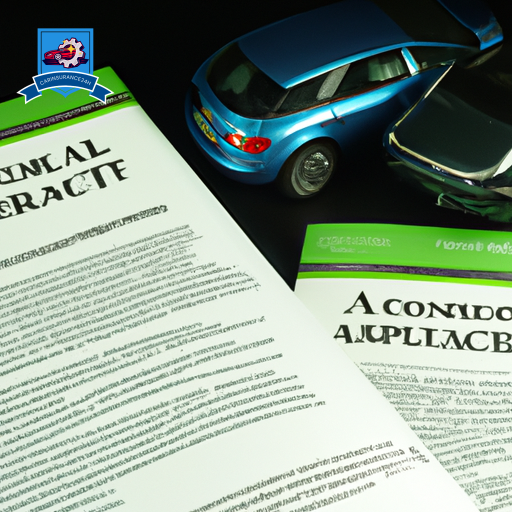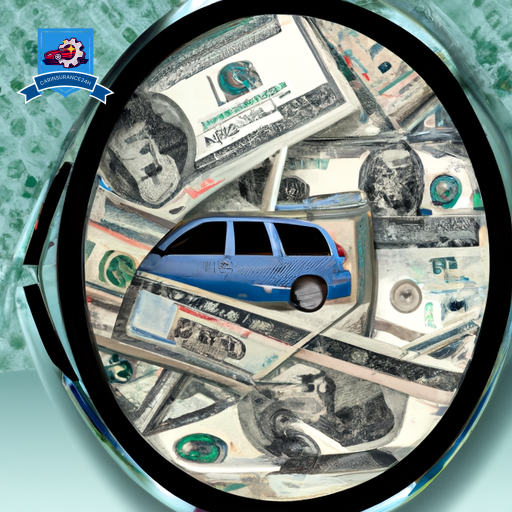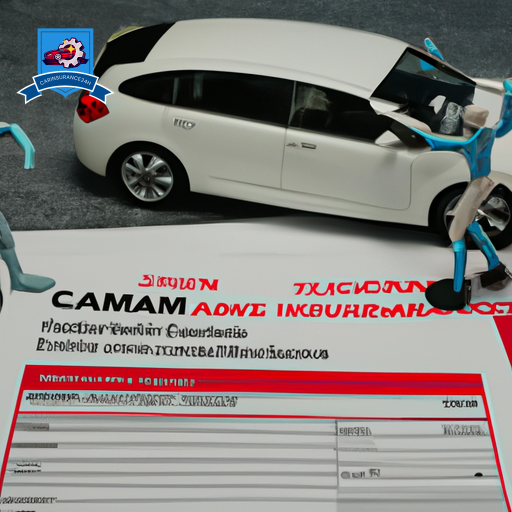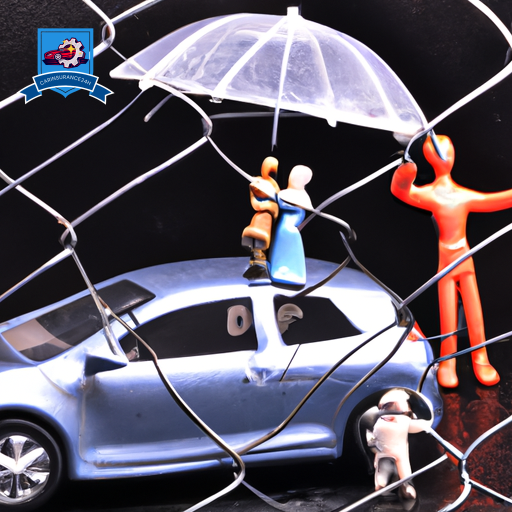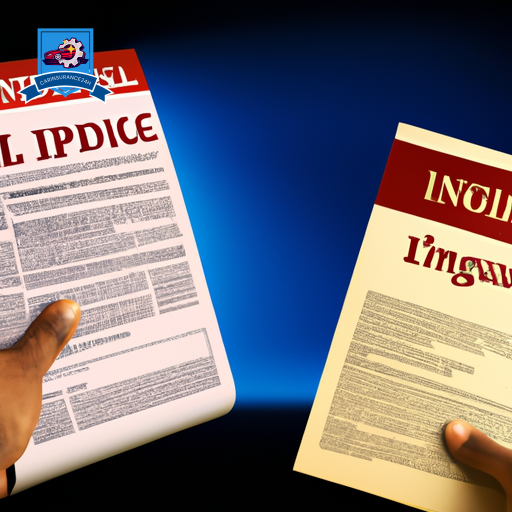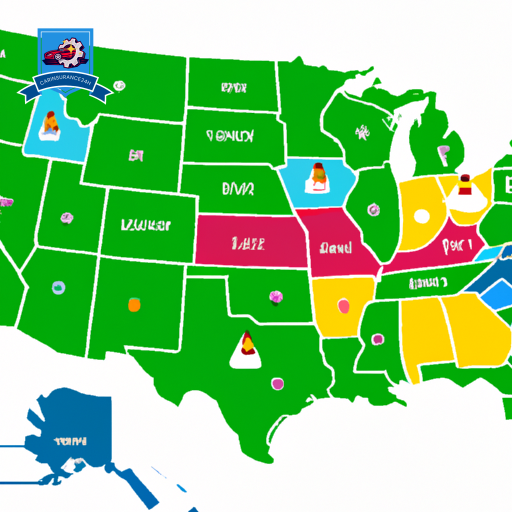Personal Injury Protection (PIP) car insurance, a staple component of auto insurance policies in many states, serves as an essential safety net for drivers and passengers alike. By design, PIP coverage provides financial assistance for medical expenses, lost wages, and other related costs incurred due to a vehicular accident, irrespective of who is at fault.
This aspect of auto insurance stands out for its direct focus on mitigating the economic impact of injuries on policyholders, offering a layer of financial security that transcends the limitations of traditional liability insurance. However, the intricacies of PIP coverage, including its benefits, limitations, and the nuances of filing a claim, reveal a complex landscape that demands a closer examination.
The exploration of these facets not only sheds light on the value PIP insurance brings to the table but also highlights the critical differences and decision-making considerations for policyholders steering their insurance options.
Definition and Basics

Personal Injury Protection (PIP) car insurance is a coverage that provides financial compensation for medical expenses, lost wages, and other related costs incurred by the insured individual as a result of a vehicular accident, regardless of who is at fault. This form of insurance stands as a cornerstone in the architecture of automobile insurance policies, offering a layer of financial security to policyholders.
The origination history of PIP insurance traces back to the early 1970s, when the traditional liability insurance model was found wanting in terms of providing immediate medical coverage without the need for protracted legal battles over fault. Designed to reduce the necessity of litigation and to expedite the provision of funds for recovery, PIP insurance was introduced as a mandatory component of auto insurance in some states, known as ‘no-fault’ states. This system allows for quicker payouts since the insurance company pays out claims without determining fault, streamlining the process.
However, PIP coverage is not without its limitations and policy exclusions. Certain scenarios and conditions may not be covered under PIP. These exclusions typically include injuries sustained while committing a felony, driving under the influence of drugs or alcohol, or injuries from accidents involving vehicles with fewer than four wheels. Additionally, injuries that occur during the course of employment, for which workers’ compensation claims can be made, are also generally excluded from PIP coverage.
Understanding these fundamentals—the protective intent behind PIP insurance, its historical roots, and the parameters of its coverage—is essential for policyholders seeking to navigate the complexities of auto insurance and make sure they are adequately protected in the event of an accident.
Coverage Details
Diving into the specifics, Personal Injury Protection (PIP) insurance covers a significant range of expenses to support policyholders in the aftermath of a vehicular accident. This coverage is designed to make certain that individuals involved in a car accident receive immediate medical attention without the delays often associated with determining fault. PIP insurance typically extends to cover medical expenses, lost wages due to inability to work, and sometimes funeral expenses. However, the extent of coverage is governed by predefined coverage limits and exclusion criteria established by the insurance policy.
Coverage limits play a vital role in defining the scope of PIP insurance. These limits set the maximum amount the insurance company will pay for covered expenses after an accident. Policyholders can select their coverage limit based on their personal needs and the options provided by their insurer, but it is important to understand that higher coverage limits come with higher premiums. The choice of coverage limit should balance the potential need for financial support with the cost of premiums.
The exclusion criteria of PIP insurance delineate scenarios and expenses that are not covered under the policy. Common exclusions may include injuries sustained while committing a felony, injuries from accidents that occur during certain high-risk activities not covered by the policy, or injuries that happen while driving a vehicle not listed on the policy. Understanding these exclusions is essential for policyholders to have clear expectations of their coverage and to avoid surprises at the time of a claim.
Benefits of PIP Insurance
Understanding the benefits of Personal Injury Protection (PIP) insurance is essential for policyholders seeking inclusive coverage.
PIP insurance provides a wide range of benefits, including covering medical expenses, compensating for lost wages, and ensuring coverage for essential services.
These features make PIP insurance an invaluable component of a policyholder’s overall insurance strategy, offering a layer of financial security in the aftermath of an accident.
Covers Medical Expenses
One of the primary benefits of Personal Injury Protection (PIP) insurance is its coverage for medical expenses incurred due to vehicular accidents. This aspect of PIP insurance is particularly important as it guarantees policyholders are not financially burdened by the immediate healthcare costs following an accident.
The coverage typically includes:
- Hospital stays, ensuring that any necessary hospitalization is financially covered.
- Medical procedures that may be required as a direct result of the accident.
- Rehabilitation costs, aiding the policyholder’s recovery process.
- Prescription drugs, covering the cost of necessary medication prescribed post-accident.
Lost Wages Compensation
In addition to covering medical expenses, Personal Injury Protection (PIP) insurance also compensates for lost wages, guaranteeing policyholders are financially supported during their recovery period. This facet of PIP insurance plays a critical role, especially for those whose injuries prevent them from returning to work immediately. By providing a portion of the policyholder’s usual income, PIP insurance helps maintain financial stability.
Understanding the tax implications of these wage replacement benefits is essential. Generally, PIP payouts for lost wages might not be taxable, but policyholders should consult with a tax professional for specific advice. Additionally, coordination with employers is crucial to guarantee that the compensation from PIP insurance complements any existing sick leave or short-term disability benefits, optimizing the financial support available to the injured party.
Essential Services Coverage
Beyond medical expenses and lost wages, Personal Injury Protection (PIP) insurance also extends its benefits to cover essential services that the injured party may no longer be able to perform. This facet of PIP insurance is important, as it acknowledges the broader impact of injuries beyond immediate physical harm and financial loss. The coverage for essential services encompasses a variety of tasks, subject to specific service limits and exclusion criteria outlined in the policy. These services include:
- Daily household chores
- Childcare responsibilities
- Lawn and property maintenance
- Transportation services for medical appointments
The provision for essential services under PIP insurance guarantees that the injured party can focus on recovery without the added stress of managing everyday tasks, within the bounds of the policy’s service limits and specified exclusion criteria.
Comparing PIP With Traditional Insurance
Understanding the distinctions between Personal Injury Protection (PIP) and traditional car insurance is important for drivers seeking thorough coverage. These differences are mainly evident in the cost analysis and the claim process aspects, which impact a policyholder’s experience and financial considerations.
To provide a clear comparison, below is a table that highlights key differences:
| Feature | PIP Insurance | Traditional Car Insurance |
|---|---|---|
| Coverage Scope | Medical expenses, lost wages, funeral costs | Vehicle damage, liability for bodily injuries |
| Cost Analysis | Generally higher premiums due to broader coverage | Premiums depend on vehicle type, usage, and driver’s history |
| Claim Process | Often involves a quicker settlement process | Can be lengthy due to the necessity of establishing fault |
| Fault | No-fault; pays out regardless of who caused the accident | Fault-based; coverage depends on who is at fault |
| State Requirement | Required in some states | Required in most states |
This comparison underscores that while PIP offers extensive coverage that benefits the policyholder directly by covering more personal expenses, it might come at a higher cost. The claim process under PIP tends to be more streamlined, allowing for faster access to funds for immediate needs, contrasting with the potentially more complex and time-consuming process involved with traditional car insurance claims, where determining fault is a prerequisite for compensation.
Choosing between PIP and traditional car insurance involves weighing these differences against personal needs and financial capabilities. This analysis is important for drivers to select the most suitable coverage that aligns with their specific requirements.
How to File a PIP Claim
Filing a Personal Injury Protection (PIP) claim involves several important steps to make sure timely and accurate compensation for covered incidents. Understanding the process is essential for policyholders to navigate the complexities of insurance claims efficiently. This includes being aware of claim deadlines and utilizing documentation tips to enhance the claim’s chance of success.
When initiating a PIP claim, the following steps are essential:
- Report the Incident Promptly: Immediate reporting to your insurance provider is critical. Delays can complicate the claim process. Knowing the specific claim deadlines set by your insurer is important as they vary and are strictly enforced.
- Gather Documentation: Collect all necessary documents, including medical reports, police reports (if applicable), and any other evidence of the incident and expenses incurred. Documentation tips include keeping detailed records of treatments and expenses related to the injury.
- Complete the Claim Form Accurately: Fill out your insurer’s claim form thoroughly. Providing accurate and detailed information here is pivotal for a smooth claim process.
- Stay in Communication with Your Insurer: Throughout the claim process, maintain open lines of communication with your insurance company. They may require additional information or documentation as they review your claim.
Timeliness and thoroughness are key factors in filing a PIP claim. Adhering to claim deadlines and employing solid documentation tips can significantly impact the effectiveness and efficiency of the claim process. Policyholders should approach each step with diligence, ensuring all necessary information and documentation are provided promptly to facilitate a smooth and timely resolution.
State Requirements and Variations
The landscape of Personal Injury Protection (PIP) car insurance is shaped notably by state regulations, which dictate whether coverage is mandatory or optional.
These regulations result in a patchwork of policy differences across the United States, influencing both the scope and the cost of protection.
Understanding the specific requirements and variations by state is essential for policyholders to make sure compliance and optimize their coverage.
Mandatory Coverage States
Several states mandate personal injury protection (PIP) car insurance, each with its unique requirements and variations in coverage. These mandates fundamentally aim to guarantee that individuals involved in car accidents can secure immediate medical coverage without the need to establish fault. The intricacies of each state’s PIP requirements introduce a complex landscape for policyholders, particularly concerning exemption criteria and premium impacts.
-
Exemption Criteria: Certain states allow drivers to opt out of PIP coverage under specific conditions, influencing individuals’ decisions based on their personal risk assessments.
-
Premium Impacts: The mandatory inclusion of PIP coverage often results in higher insurance premiums, though the exact increase varies across states.
-
Coverage Minimums: States dictate minimum PIP coverage limits, affecting the breadth of protection.
-
Benefit Caps: Some states impose caps on PIP benefits, limiting the maximum payout in the event of a claim.
Policy Differences by State
Understanding the nuances of Personal Injury Protection (PIP) requirements across different states is essential for policyholders maneuvering the diverse landscape of mandated car insurance coverage. State reciprocity plays a critical role in how policies are recognized and applied across state lines, affecting policyholders who frequently travel or move.
Additionally, premium disparities emerge as a significant factor, shaped by each state’s legislation and the inherent risk assessment of the insurance providers operating within those jurisdictions. These variations necessitate a thorough investigation by policyholders to guarantee compliance and best coverage.
The interplay between state-specific regulations and the insurance entities’ policies underscores the complexity of acquiring and maintaining PIP coverage that aligns with both legal requirements and individual needs.
Frequently Asked Questions
How Does PIP Insurance Affect My Premium if I’m Involved in Multiple Accidents?
PIP insurance may lead to increased premiums if multiple accidents occur, absent accident forgiveness. Premium calculation considers such events, potentially adjusting rates upward to reflect the heightened risk associated with a policyholder involved in numerous incidents.
Can PIP Coverage Be Extended to Cover Incidents When I’m a Pedestrian or Using Public Transportation?
Personal Injury Protection (PIP) coverage often extends its protective embrace to incidents involving policyholders as pedestrians or during public transport scenarios, ensuring a thorough safety net beyond the confines of personal vehicle use.
Are There Any Specific Exclusions Under PIP Coverage That Are Commonly Overlooked?
Commonly overlooked exclusions under PIP coverage often relate to the policyholder’s occupation and coverage geography. Certain professions and geographic locations may not be covered, underscoring the importance of thoroughly reviewing policy details.
How Does PIP Coverage Interact With Health Insurance Policies, Especially in Terms of Deductibles and Coverage Limits?
Traversing the labyrinth of insurance, coverage coordination between Personal Injury Protection (PIP) and health insurance hinges on policy compatibility, especially concerning deductibles and coverage limits, ensuring a seamless overlay of benefits and financial protection for policyholders.
Can PIP Insurance Premiums Be Reduced Through Defensive Driving Courses or Other Safety Programs?
Yes, insurers often offer discounts on Personal Injury Protection (PIP) insurance premiums to policyholders who complete approved defensive driving courses or other driver education programs, as these are viewed as measures to mitigate risk.


